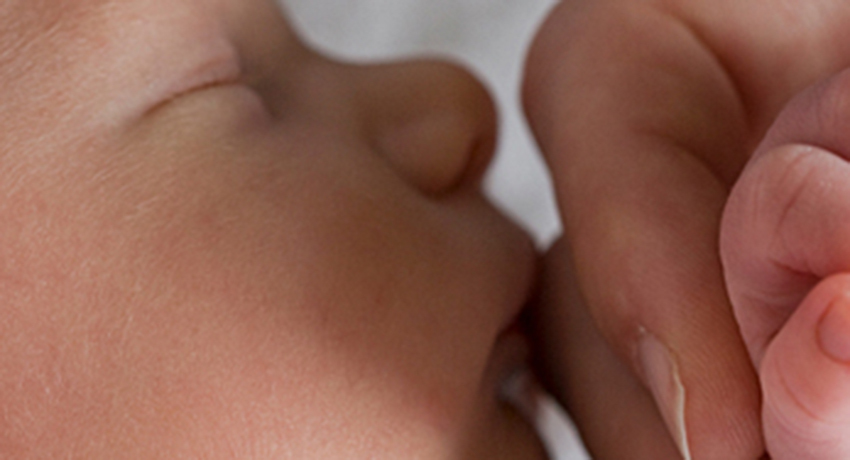Sarah Brown
Survivor #11 : Sarah Brown

Survived Abortion : July 1993
Place : Wichita, Kansas, USA
Injuries : Brain damage
Died : Some years later
Sarah's story
Sarah's story begins July 13, 1993. She had spent 36 peaceful weeks in her mother's womb before the needle filled with poison stabbed her in the brain three times. By all odds the assault should have killed her, but something inside Sarah refused to give up. Two days later she was born in a Wichita, Kansas, hospital. Sarah's birth mother signed away her rights to her daughter almost as soon as the seven-pound, five-ounce abortion survivor was born with visible puncture wounds above her left eyebrow and at the base of her skull. Without knowing her whole story Bill and Marykay Brown obtained temporary custody of the baby within 24 hours and adopted her 30 days later.
The Browns heard about Sarah from a pro-life attorney who knew they wanted to adopt a special-needs child. The toxin that the abortionist injected into her brain caused injuries that became apparent and progressively worse as Sarah grew. "For the first few months she seemed to be progressing normally, although she was blind," said Marykay Brown. "She had acute hearing, and was beginning to try to speak." However, at about five or six months Sarah suffered a stroke from which she never fully recovered. Brown said she showed awareness of her environment and her family, but never spoke or walked.
"She recognized us and learned to smile," Mrs. Brown said. Sarah also discovered a unique way of communicating. A machine monitored her at night and would sound an alarm if Sarah stopped breathing. "She learned that if she held her breath the monitor would go off," Brown said. "We would jump out of bed and she would be grinning at us. That was how she got attention." The Browns' seven other children, ranging in age from 18 to 12, accepted Sarah into their hearts too. "I can't remember a time when someone wasn't holding her, talking to her, playing with her," Brown said.
Sarah had progressive airway disease, caused when she ingested some of the poison during the abortion attempt. Before her death she spent a short time in the hospital and the family knew she was getting weaker, according to Brown. Sarah died at home on the morning of September 28, surrounded by her loving family. "Sarah died the most peaceful death," Brown said. "There was no struggling. All of us were with her."
Sarah's corneas were donated to two children. "It does my heart good that there are children who can see because of Sarah," Brown said. "A little girl who was blind gave sight to someone." Sharing her story has helped Brown cope.
"Each time I speak about her it gets a little bit easier," she said. But sharing Sarah's remarkable story helps Marykay Brown in still another way. She also speaks about her own abortion when she was 19 and the long road she traveled to healing. "It has come full circle for me," Brown said. "I talk about what it's like to be post-abortive and about the forgiveness God gives and also about abortion from the child's point of view. I've watched Sarah change people's lives." The Browns have also begun to spread the message of hope and healing on an individual level by helping pregnant women in crisis with financial and other assistance.
They started a group called Sarah Ministries and are currently helping three women whose babies are due next spring. Marykay Brown said they hope to expand this ministry and give women the help they need to choose life. "I believe Sarah's ministry will mushroom now that she's gone," Brown said. "She's an advocate in heaven now."